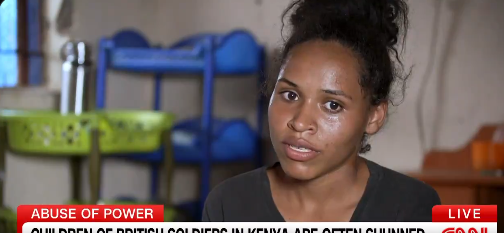British soldiers stationed in Kenya have faced allegations of sexual assault for decades, with numerous accusations of rape and abuse targeting local women. Many of the victims were left to raise biracial children alone, as the soldiers returned to the UK.
These children, who are legally entitled to British citizenship, often struggle to gain recognition and support from the UK government.
The challenges they face include legal obstacles and a lack of assistance, despite their rights, leaving many to grow up in poverty and without proper identification.
Efforts to seek justice for these abuses have been complicated by political and military sensitivities, as seen in high-profile cases like that of Agnes Wanjiru, a Kenyan woman who was allegedly murdered by a British soldier.
The investigation into such cases has sparked outrage, with accusations that the British military has covered up wrongdoing. Although some inquiries have been launched, the lack of accountability continues to raise concerns.
The legacy of these abuses continues to impact many families in Kenya, with victims and their children calling for justice and recognition.
The issue highlights the broader challenges faced by former colonies when dealing with the long-lasting effects of foreign military presence, exploitation, and the failure to provide support for the children left behind by these soldiers.


